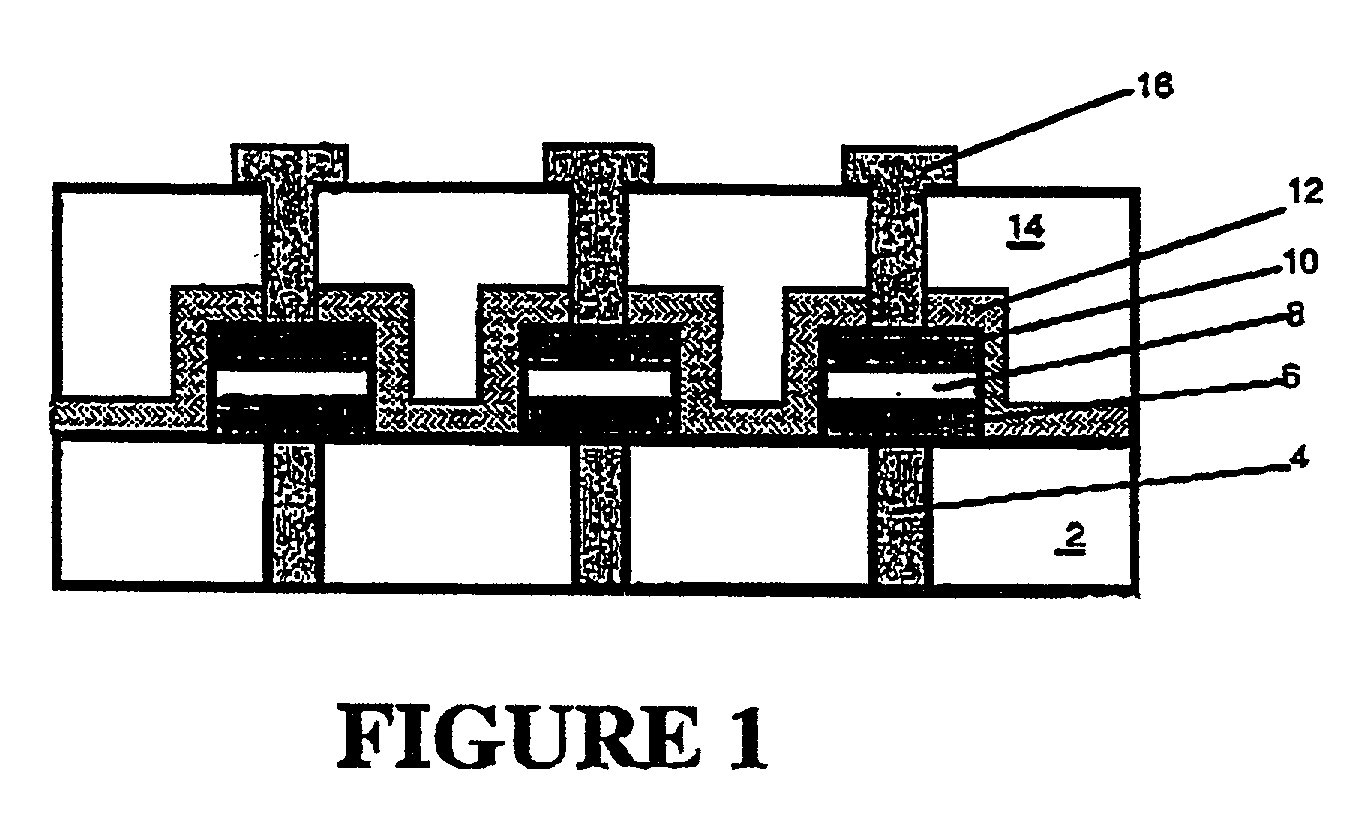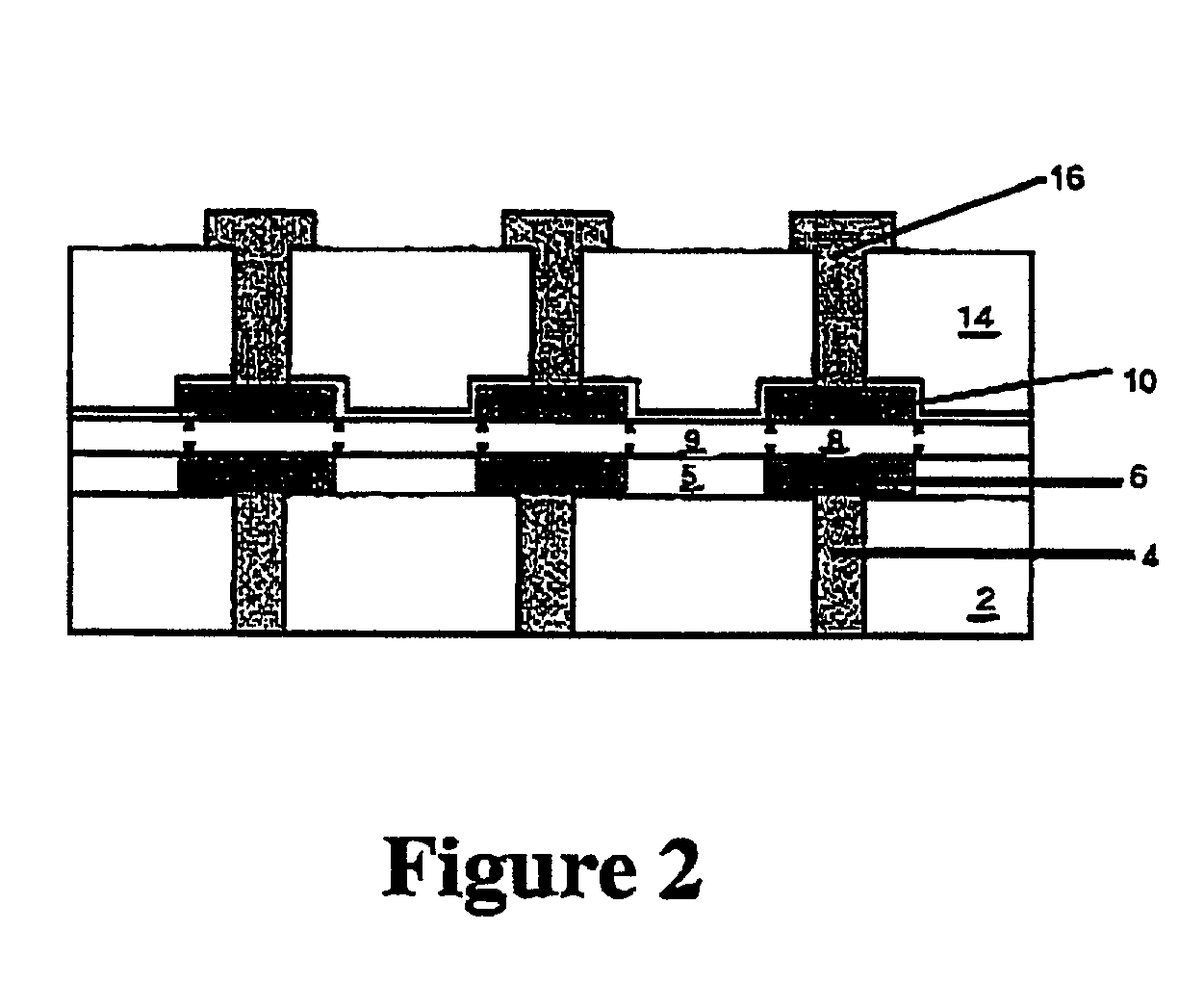Confinement of E-fields in high density ferroelectric memory device structures
- Summary
- Abstract
- Description
- Claims
- Application Information
AI Technical Summary
Benefits of technology
Problems solved by technology
Method used
Image
Examples
Embodiment Construction
[0076] The present invention contemplates various approaches to prevent unwanted dispersion of the E-fields into the regions that surround the ferroelectric material that needs to be switched in the operation of the ferroelectric device. These approaches are described in greater detail below.
[0077] One such approach includes the deposition of a non-ferroelectric, high permittivity insulating layer over and on the sides of the previously patterned capacitor stack in a capacitor precursor structure comprising such stack.
[0078] The non-ferroelectric, high permittivity insulating layer in such approach may be formed of any suitable material, as for example, TiO.sub.2 (.epsilon..apprxeq.90), Ta.sub.2O.sub.5 (.epsilon..apprxeq.40), barium strontium titanate (BST) or doped BST (.epsilon..apprxeq.400). Alternatively, the non-ferroelectric, high permittivity insulating layer may be formed of a non-ferroelectric doped or modified lead zirconium titanate (PZT) material such as Pb.sub.0.90La.su...
PUM
 Login to View More
Login to View More Abstract
Description
Claims
Application Information
 Login to View More
Login to View More - R&D
- Intellectual Property
- Life Sciences
- Materials
- Tech Scout
- Unparalleled Data Quality
- Higher Quality Content
- 60% Fewer Hallucinations
Browse by: Latest US Patents, China's latest patents, Technical Efficacy Thesaurus, Application Domain, Technology Topic, Popular Technical Reports.
© 2025 PatSnap. All rights reserved.Legal|Privacy policy|Modern Slavery Act Transparency Statement|Sitemap|About US| Contact US: help@patsnap.com


